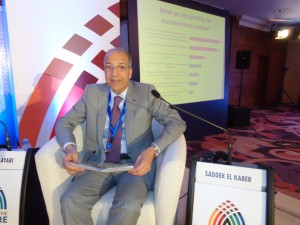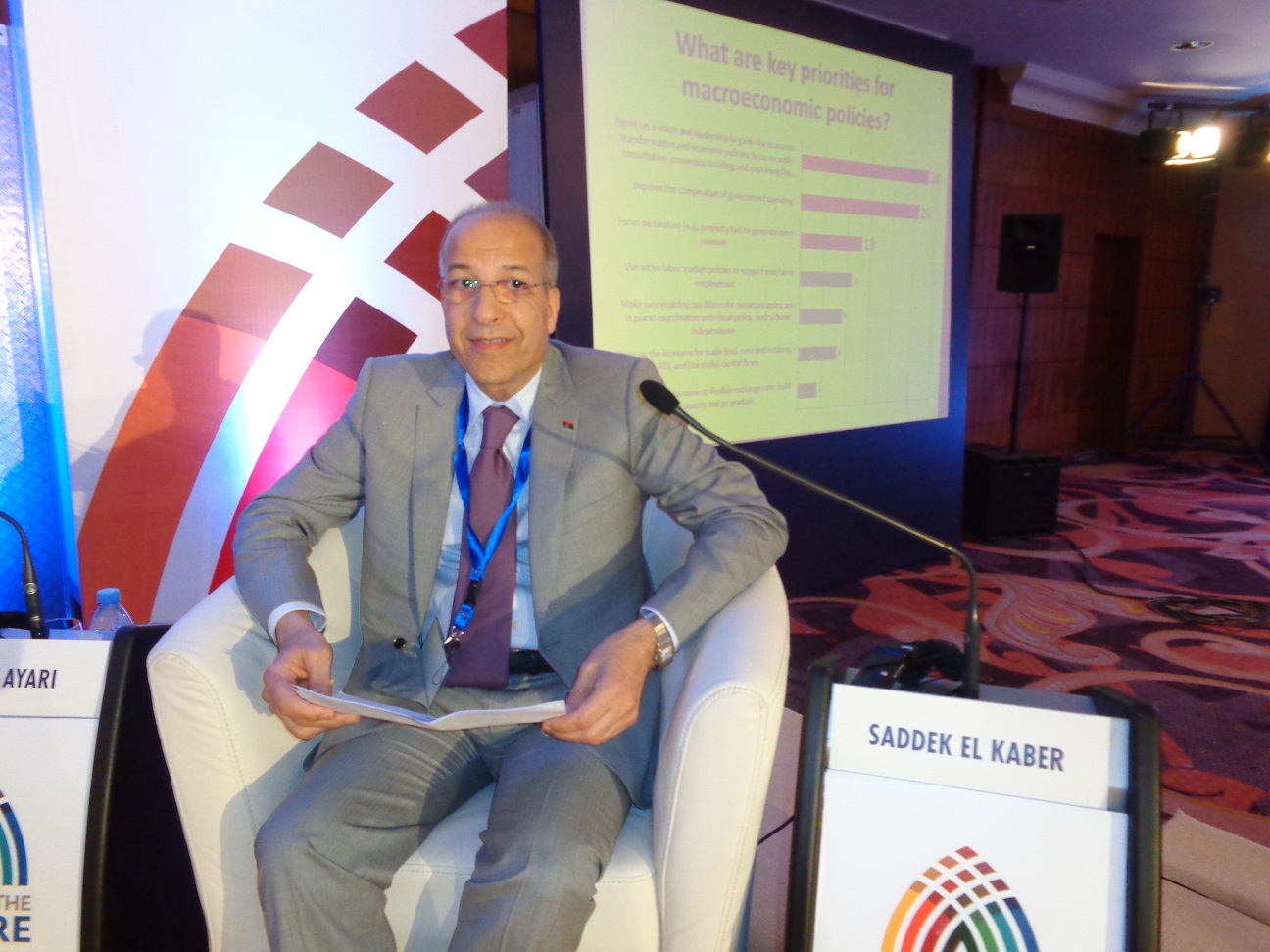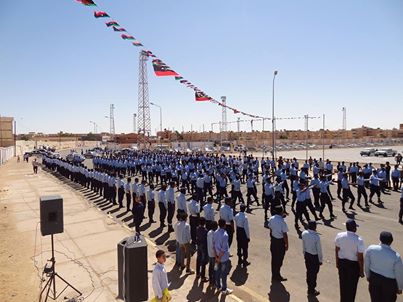By Sami Zaptia.

Amman Jordan, 12 May 2014:
Speaking at a session on improving the business climate in the MENA region, the . . .[restrict]Central Bank of Libya (CBL) Governor Saddek El Kaber said that there was no leadership and political will in Libya and the government preferred popular policies to long term policies.
El Kaber was speaking on the second and final day at the “Building the Future: Jobs, Growth and Fairness in the Arab World” conference that started Sunday in Amman Jordan for two days. The conference was attended by the IMF head Christine Lagarde, the Jordanian Prime Minister and numerous MENA central bank governors and finance ministers.
El Kaber, sharing the stage during a forum format with his counterparts, said “We inherited a state without institutions”, in Libya, and that “the size of the challenge that Libya is facing is huge. It is a new journey of discovery”, he added.
“We have constantly changing governments who prefer policies that appeal to the general public instead of long term policies”, he complained, referring to the successive Libyan governments and the legislature that has been happy to buy political support by handing out increased salaries and grants.
This has come at a cost of increased government spending and decreased investment on development, health and education. It has also eroded the Central Bank of Libya’s reserves.
“We need leadership”, the Governor complained openly. “Leadership will give us security and stability”, he said in a deciphered message back to the political establishment in Tripoli.
Referring to the make-up of the Libyan budget, the CBL Governor said that “45% of the budget goes on state expenditure. The salaries section of the budget is very large. This is an inheritance (from the former regime). There is duplication of salaries”, he explained to the audience. “We tried to improve the database of government employees by introducing a National ID number. We hope that by its proper implementation a correction can be made to the duplication of salaries”.
However, the CBL Governor pulled no punches when it came to identifying the cause of the problem. “There is no political will to implement”, he said frankly. “The General National Congress tried to implement reform”, he said regarding the body that controls the CBL. “We (the CBL) presented some reform initiatives”, too he explained..
On the lack of governance, transparency and accountability in Libya, El Kaber said that “Security has affected the role of the judiciary in Libya which has in turn affected the growth and development of the economy. No judiciary means corruption and lack of transparency”, he said succinctly.
It will be recalled that a public spat took place at the end of April between the CBL Governor and Libya’s current caretaker Prime Minister Abdullah Al-Thenni.
Al-Thinni publicly accused El-Kaber of arbitrarily blocking money to the government and of acting despotically. This public attack led to El-Kabber calling for a public hearing in the GNC so that he could defend himself.
The tension between Libya’s series of weak executive arms – the governments – and the CBL which is accountable to the GNC – have grown as Libya’s political and economic instability caused by its post-revolutionary state, has been made worse by the blockade of its oil exports by federalists.
This loss of oil revenues since summer 2013 has pushed the state into deficit, but rather than cut expenditure, the politicians have chosen to dip into Libya’s multi-billion CBL-controlled reserves – a policy course that has not gone down too well with the CBL Governor. [/restrict]









